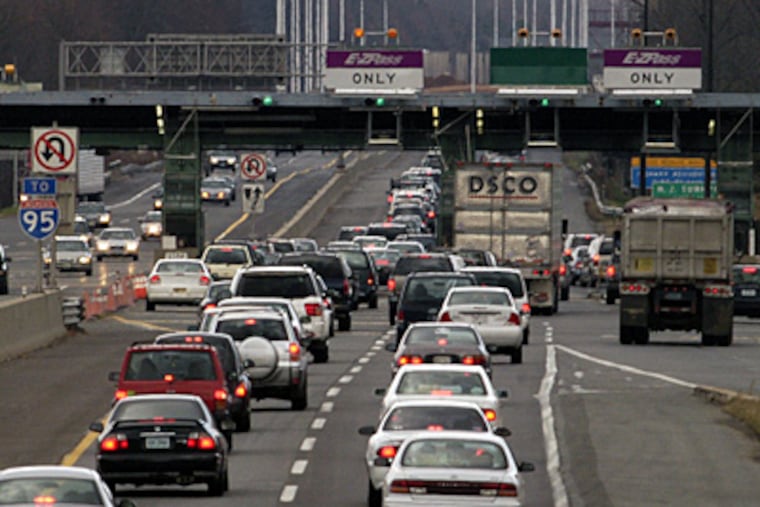Most N.J. license suspensions are spurred by unpaid fines, unfairly impacting low-income drivers, CHOP study finds
"The kind of what we might have historically thought of as a reason for license suspension makes up a very, very small fraction of all license suspensions."

An overwhelming number of license suspensions in New Jersey aren’t handed down because of traffic safety violations, like amassed points on a driving record or driving under the influence, but for offenses like not paying a fine or failing to show up in court, according to a recent study by Children’s Hospital of Philadelphia and Brown University.
The report, published this week by the Journal of Transport and Health, concludes that the suspensions are disproportionately concentrated in low-income areas, as well as communities with greater numbers of Black and Hispanic residents. The study leans on a database with access to licensing information in New Jersey from 2004 to 2018.
Of the 5.5% of licensed drivers in the Garden State with a suspended license in 2018, 91% of the suspensions were spurred by “non-driving-related” events, according to the report. Those types of suspensions were seven times more common in the lowest-income neighborhoods, and five times greater in communities with more Black and Hispanic residents.
Nina Joyce, the study’s lead author, was “very taken” by the number of driver’s license suspensions not related to traffic safety. Though Joyce and Allison Curry, the report’s senior author, had heard anecdotes surrounding the issues, they were surprised by the numbers.
“It’s necessary to show that really, the kind of what we might have historically thought of as a reason for license suspension makes up a very, very small fraction of all license suspensions," Joyce said.
Last December, Gov. Phil Murphy signed legislation halting mandatory license suspensions as a consequence of selected nonmoving offenses. The state also said it plans to stop issuing surcharges on motor vehicle violations, WHYY reported in January.
“Driver’s licenses suspensions for reasons unrelated to moving offenses are often overly punitive and can have a disproportionate financial impact on many working-class and minority families,” Murphy said last year. “A stronger and fairer New Jersey includes adapting our laws to support working families and not act against them.”
New Jersey Motor Vehicle Commission chief administrator Brenda S. Fulton has made lawmakers aware that the “vast majority of license suspensions are not related to traffic safety" during past budget hearings, a commission spokesperson said in a statement. The commission “is in alignment” with a 2018 report from the American Association of Motor Vehicle Administrators highlighting best practices to limit the number of suspended drivers, the statement said.
The CHOP study focused on the numbers, Curry said, and serves as a foundation for ongoing work exploring qualitative, firsthand impacts of license suspensions on drivers. License suspensions “may serve as a substantial barrier to accessing health care for certain communities,” according to the report.
“Moving forward, I think it’s really important to kind of think about how to study these effects, the potential for a spiral, and kind of the longer-term impact on people," Joyce said.
While the data come from New Jersey, the study’s authors believe the findings are indicative of trends across the country.
“We’re hoping that this study serves kind of as the evidence base both in the state of New Jersey," Curry said, “but also for states who may be considering readdressing these policies.”